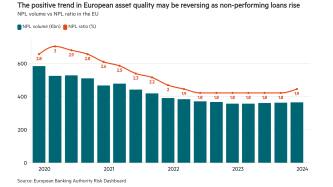UK financial regulators want to boost diversity and inclusion to encourage healthier work place cultures, reduce groupthink and unlock talent. With that in mind, the Financial Conduct Authority (FCA) recently issued guidance to encourage firms to develop clearer diversity and inclusion roadmaps.
The new FCA and Prudential Regulatory Authority (PRA) guidance makes clear the link between workplace culture and the lack of diversity and representation at the highest levels. It calls on firms to develop a clear diversity and inclusion strategy, setting out how they will meet its objectives and goals, as well as collect, report and disclose data regarding certain characteristics. The guidance only applies to the largest firms.
In strengthening expectations about how firms respond to allegations of misconduct, the FCA measures make clear that bullying and sexual harassment are key risks to healthy firm culture.
Regulatory action follows high-profile cases such as that of London hedge fund manager Crispin Odey, who was reported to have left Odey Asset Management, the firm he founded, in June following allegations of sexual misconduct and harassment. Lawyers representing Mr Odey have “strenuously disputed” the allegations against him, according to the Financial Times.
Is workplace culture to blame for women’s lack of progress?
Issues like workplace culture certainly play a role in making it difficult for women to advance to the very top in financial services, says Emma Bartlett, partner and diversity and inclusion lead at employment and regulatory law firm CM Murray. Gender-based bullying and harassment are one of the main reasons women do not reach executive-level positions, she says.
“Regulators must address intimidating work environments. Based on the cases that I see, [bullying and harassment] stems from women’s peers. It’s from those who may have professional jealousy against a woman who has managed to succeed, or who is flourishing in her career and looking for the next step.”
Ms Bartlett adds that bullying tactics in the workplace typically take “cloak-and-dagger” approaches, making it more difficult for other co-workers to observe. Such treatment may constitute more covert actions like “trying to exclude women from the next opportunity, stealing women’s ideas, and trying to cut them out of deals”, she says.
Conduct may also manifest as micro-aggressions or types of non-inclusive behaviours, like interrupting or excluding women, says Kristen Anderson, CEO of European Women on Boards, which works to increase the board- and C-suite-readiness of women leaders across Europe.
Women often exit the work environment or are not promoted as a result of unconscious behaviours, she says, adding: “Women of colour face it in an exponential way. That can be 10 times more difficult.”
Other blockers to female progression stem from unconscious bias and the maternity penalty, says Ms Bartlett. “These can all be addressed, but getting the message from the regulator will likely bring about change quicker,” she says.
Will FCA guidance see more women advance to executive roles?
Ms Bartlett says that by and large women do not feel that they will be taken seriously about bullying and harassment issues. “If women try to seek support through the relevant formal processes, unfortunately it usually signals the end of their career within that organisation,” she says, predicting that cases of whistleblowing in the UK could rise as a result of the new regulatory guidelines.
She hopes that the regulatory guidance will better enable women to have the support of their bank in bringing forward complaints, in turn enabling more women to advance to executive roles.
In September, DBRS Morningstar reported that women remain significantly under-represented in senior leadership positions across Europe’s banks. While gender equality on boards of directors is improving, women made up just 23% of European banks’ senior executive roles.
“Progress remains glacial,” Ms Bartlett says, looking to regulators to instil change.
The UK’s Treasury Committee is currently examining the barriers faced by women in financial services, calling for evidence on the role of, and progress of, the government, financial regulators and firms in combatting sexual harassment and misogyny in financial services. It also welcomed suggestions about effective ways to escalate concerns about sexual harassment.
Calls for evidence have closed, but the Treasury Committee hopes to address whether the culture of the financial sector has “shifted at all in the last five years” as outlined by the committee’s chair, Harriet Baldwin.
Consultation on the FCA and PRA’s joint guidance on diversity and inclusion is open until 18 December 2023. Feedback will inform the development of rules planned for publication next year.












